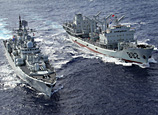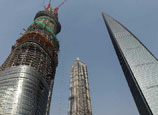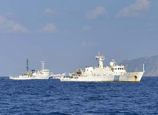
Trade conflicts with the U.S. were the most major ones. (Photo/China Daily)The Fiction behind FrictionFor the past decade, the electrifying trading power has driven China's economic engine forward at a miraculous speed, but has also sent the rising economic powerhouse suffering increasing trade frictions.
China accounted for around 10 percent of the global exports, yet one-third of the world's anti-dumping investigations and half of the anti-subsidy investigations are against China. In fact, China has suffered more trade frictions than any other country in the world over the last 10 years.
Some major economies used to accuse China of giving unfair support to traditional exports, but in recent years, they launched a slew of trade investigations targeting China's emerging and high-end products.
The United State, China's second-largest trading partner, brought an increasing number of anti-dumping and anti-subsidy cases against China, including those concerning China's automobile tires in 2009, photovoltaic products late in 2011 and Chinese cars and auto parts in September 2012; while the European Union, China's largest trading partner, filed an anti-dumping investigation into Chinese photovoltaic products at the same time in September.
Moreover, in February, the United State launched the Interagency Trade Enforcement Center (ITEC), aiming to strengthen its efforts to investigate what it called "unfair trade practices" from its major trading partners.
"Those accusations remind me of the wild American fictions I read in my twenties," Shi Mingshen, one of China's most influential business commentators, said to this journalist.
"The establishment of the ITEC is a sign of rising trade protectionism. Actually, China's major trading partners including the United States have been benefiting from China during the past 10 years, enjoying low inflation and high industrial competitiveness."
Experts believe that the reasons for the increased trade protection measures against China are the sluggish global economic environment and the high unemployment rate in some of China's major export destinations as well as the rising Asian power's comparative edges in manufacturing.
The unemployment rate in the eurozone hit a 10-year high in May 2009 of 9.5 percent, and by September 2012, it had reached as high as 15 percent in five of the EU members.
The rate in the United States, from December 2008 to February 2012, was averaged above 7 percent amid its sluggish economic conditions caused by the global financial crisis.
Of all the trade frictions China has suffered during the last decade, the conflicts with the United States were the most major ones.
"US trade protection measures against China will not decline due to the sluggish US economy and China's huge trade surplus with the No.1 superpower," Ms. Shi said.
China's trade surplus with the US has often been used by the protectionist as an easy excuse to bash China and build trade barriers against the country.
However, it is a consensus among Chinese experts that the main cause of the US trade deficit with China has been the Asian economic power's comparative advantages in manufacturing.
China's abundant human resources have made the world's most populous country hold the incomparable edges in low-end manufacturing. And although the cost of labor in China has been growing in recent years, it is still relatively low, especially when compared with the high cost of labor in the United States.
"As long as the rule of free trade is followed, China's trade surplus with the US will not be eased to a large extent in the not-too-distant future," said Ms. Shi.
"However, the current trade tension between China and the U.S. may be alleviated next year by the time the election is over and the US economy further recovers. In the meantime, China is moving towards a more consumption-oriented economy from the export-driven growth model. After all, it is clear that trade between the two highly-complementary markets is greatly beneficial to both of the economic powers."
"China and the U.S. have more common interests than differences in foreign trade," said Ms. Shi.
Over the past golden decade, China has been seeking common interests with its trading partners during competition, friction and cooperation.
"China is not the only beneficiary for its entry into the WTO, the advanced countries, emerging economies and even some of the least developed countries in Africa also benefited from it," said Kandeh Yumkella, Director-General of the United Nations Industrial Development Organization (UNIDO).♦
Read on: Part II: Eastern Boom Lightens Western GloomLi Zhenyu authors the "Golden Decade" column for People's Daily Online.【1】 【2】 
















 Spectacular images of erupting volcanoes
Spectacular images of erupting volcanoes


![]()
